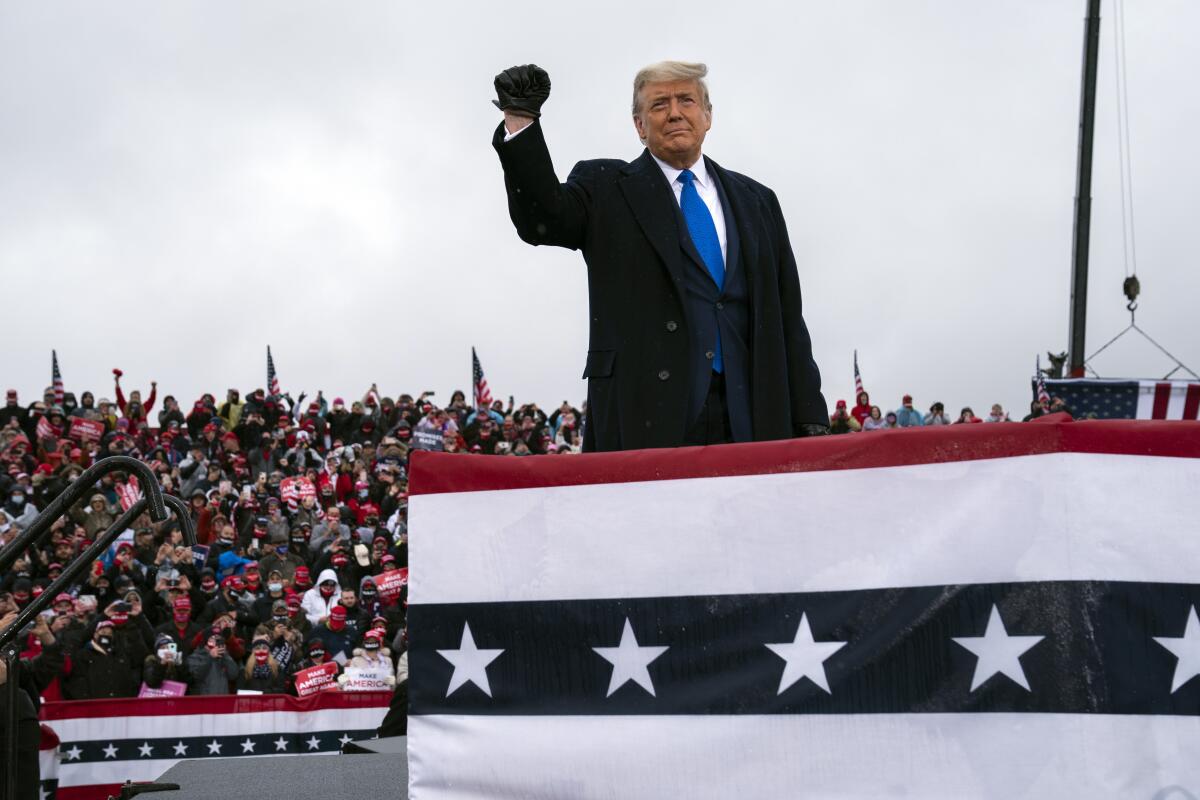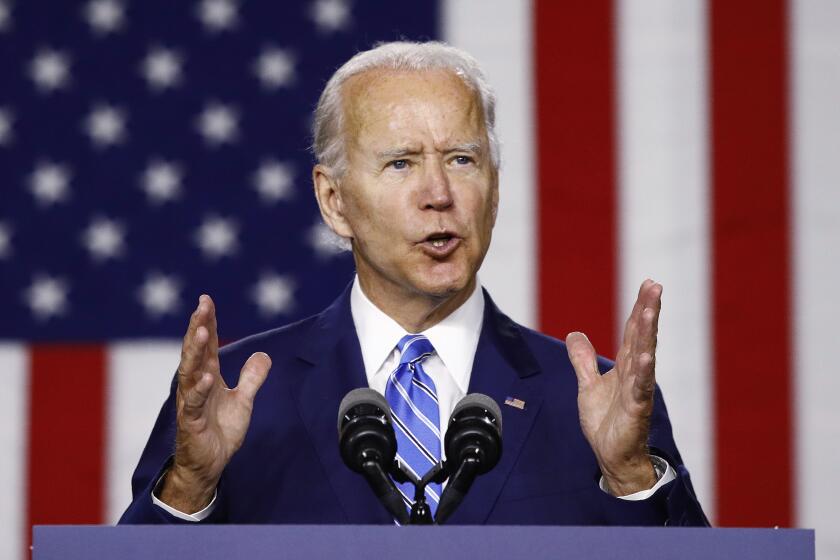Fears of election violence are widespread, poll finds

- Share via
WASHINGTON — President Trump’s supporters in California have become less confident that this fall’s election will be conducted fairly, and backers of Joe Biden have grown more confident, a new UC Berkeley poll shows.
Overall, 4 in 10 likely voters in the state thought it was “not too likely” or “not at all likely” that the election would be fair and open, according to the Berkeley Institute of Governmental Studies’ final preelection poll. In September, supporters of both were roughly equally likely to express that concern. Now, 56% of Trump voters polled are concerned, compared with 33% of Biden supporters.
The shift comes as Trump steps up complaints about the election process and as more voters on both sides believe Biden is likely to win.
Trump voters in California were also more likely than Biden voters to say they expected postelection violence if there are disputes about the accuracy of the vote count. More than 5 in 10 Trump supporters polled believed violence was “very likely,” compared with 4 in 10 Biden voters.
Overall, the poll indicated nearly 9 in 10 likely California voters were worried others wouldn’t accept the outcome. In addition, 44% believed violence was “very likely” if there were disputes about the election, while another 44% called it “somewhat likely”; just 12% said it was not likely.
“It’s not a sign of a healthy political system” that so many voters are worried about potential violence or won’t accept the election outcome, said Eric Schickler, co-director of the UC Berkeley institute.
He said anxiety about whether this election might be close, and the potential for violence if it is, makes the current campaign highly unusual. “Even 2000 was resolved peacefully,” he noted. “Now, it’s less clear.”
Trump’s objections to mail-in voting, with a focus on California, have also affected his supporters here.
The final UC Berkeley poll of California voters shows Biden is likely to defeat Trump by the largest margin for a Democratic presidential candidate in state history.
California has had widespread voting by mail for decades, and a majority of votes have been cast by mail in primaries since 2008, and in general elections since 2012, according to state data.
In many years, Republicans have used mail-in ballots in California more heavily than Democrats. But this year, with Trump decrying mail-in ballots as a source of voter fraud, Republican voters are expressing unaccustomed doubts. Among Republicans, 73% said they were at least somewhat less confident their vote would be counted when voting by mail, and nearly half said they were much less confident.
Democratic leaders earlier this year had voiced worries about whether the U.S. Postal Service would deliver mail ballots properly. Yet the poll showed Democratic voters were much less concerned than Republicans, with one-third saying they had less confidence in their vote counting if they mailed their ballot. California will count votes that arrive by Nov. 20 so long as they are postmarked by election day.
Overall, a quarter of California voters said they would mail their ballots this year, while 55% said they would use a drop box or drop a ballot off at a voting center. Just 8% said they planned to vote in person before election day, and 12% said they would vote in person on election day.
But among Trump supporters, 28% said they would vote in person on election day, as Trump has frequently urged people to do. That figure rose to 34% among likely voters who described themselves as “very conservative.”
By contrast, only 5% of Biden voters said they planned to vote in person on election day.
The Berkeley institute’s poll, supervised by Mark DiCamillo, was administered online Oct. 16-21 in English and Spanish among 6,686 registered California voters, 5,352 of whom are considered likely to vote in the Nov. 3 election. The margin of error for the full sample is estimated at roughly 2 percentage points in either direction. Further details on the poll questions and data can be found at the Berkeley Institute of Governmental Studies website.
More to Read
Get the L.A. Times Politics newsletter
Deeply reported insights into legislation, politics and policy from Sacramento, Washington and beyond. In your inbox three times per week.
You may occasionally receive promotional content from the Los Angeles Times.












